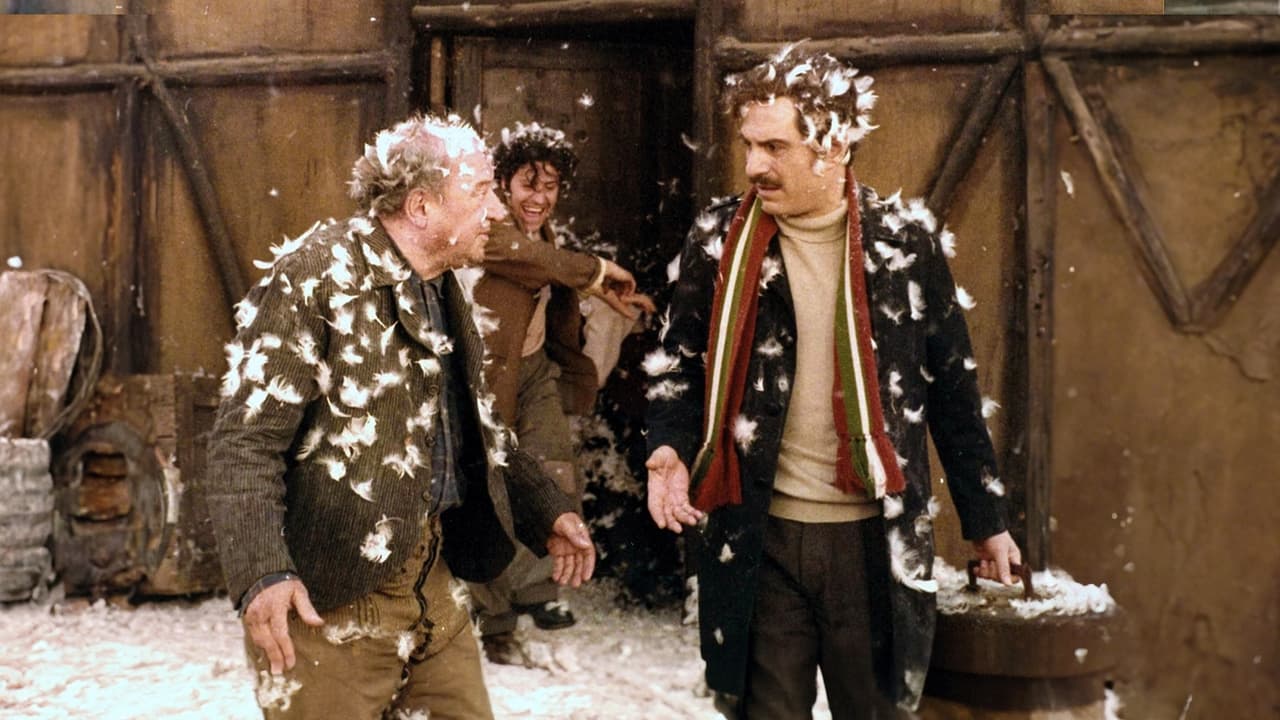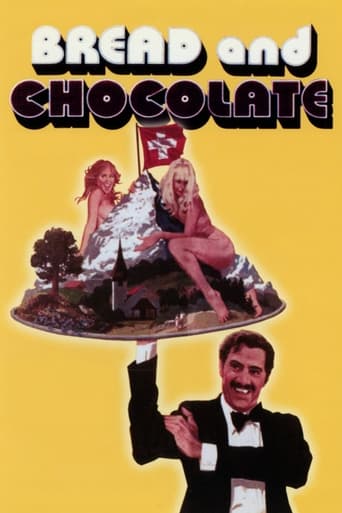

Then it was Italians for the Swiss. Recent it was Romanians for the Italians. And now the Chinese for the Romanians. This movie talks about the courage and the naivety of becoming a foreigner in the endless search for "the better". In the end...it remains a search and that is because we are not moving from a country to another inside ourselves. We are keeping the same place there: the place called "us- who we really are". The search remains without meaning, without result if we can't understand the importance of looking at us and understand the cultural and spiritual significance of our core. The story: An Italian becomes an immigrant in Sweetland, in search for what his country can't give to him and his family; financial stability. Here he has to face new and continuous challenges, even greater than the ones he had to face in his country and son... the hero finds himself fighting with destiny itself who seem to have made a job out of the continuous effort of putting Nino down and tryings to show him who he is and that he must not forget what the reason is for his presence in the semi-adoptive country. A drama full of comic and hilarious situations where the director really knows what is the difference between comic and drama and how to put them next to each other without failing to send the message. But more important, the comic is on the highest standard of intelligence; simple and efficient as you expect from a movie that has cinematic power inside as well as an important theme to explore and expose: immigration. The acting is incredible and all the actors manage to deliver it to the highest expectations. Nino Manfredi is exceptional and extremely well distributed in this role created with the sensibility for abstract. A movie to remain in history before and after all the countries will merge into one.
... View MoreIf all the film-festival awards this movie has won haven't convinced you to see it, then my review probably will not either. Regardless, it is important to know how well-done this movie truly is. Nino Manfredi does an absolutely stellar performance as a poor Italian immigrant trying to fit in in a world which dislikes him and his kind. From the start, this seems like a regular enjoyable comedy, but quickly transitions into both a comedy and a drama. On the one-hand, Manfredi's Chaplinesque "loveable loser" character is both endearing and hilarious. On the other hand, the film offers true insight into the problem of immigrational bias and cultural dissimilarity, and a stabbing insight into the premise of a national identity; how it is both meaningless and yet extremely important. This film deserves every award it received and then some.
... View MoreThe most touching moment of this film was when the late and great Nino Manfredi colours his hair blonde to assimilate being a German whilst watching the historic Italia 4 -Germania 3 match. Of course he can't contain himself when the azzurri come out on top in extra time. With the great Friulian goalkeeper Dino Zoff who kept going until 1982 when Italia were once triumphant over the team from Deutschland. This phenomenon of pretending to belong to a culture is quite common in South Australia. People with the most remote Italian roots masquerade in the clothing of Italian football teams and go around offending first generation Italians. In particular those of the Istrian refugee heritage. I've coined this phenomenon the Van Brussel effectAB Pods
... View MoreAs I said before, I would recommend this film to anyone who likes a challenge. Taken at face value, the movie itself is rather boring, and it would be easy for me to say that I did not enjoy it, however taking a closer look, this movie contains themes to which we can all relate.Garofalo is an Italian man who is traveling around Switzerland looking for work. He refrains from returning to Italy because he can make so much more money in Switzerland. Throughout the film, Garofalo meets many people of all nationalities who face the same problem as he. May I suggest to the next viewer that you investigate the meaning behind the tittle. I am working on that one myself!
... View More